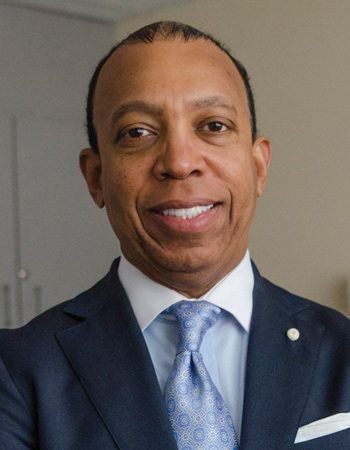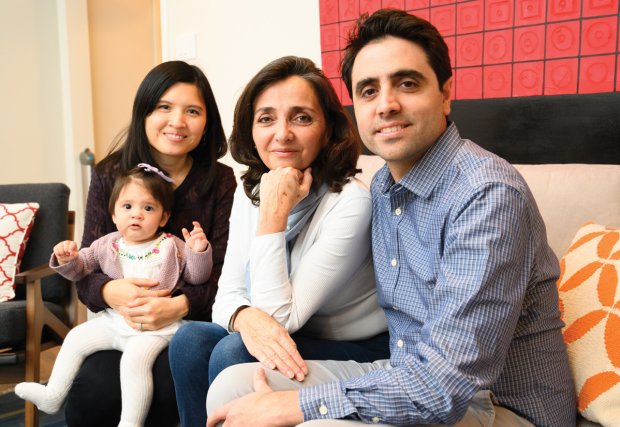It was a challenging turn of events that brought Paulina Romo Leroux to GW Hospital for specialty cancer care. The first sign of a problem was stomach discomfort, which a local care provider diagnosed as heartburn. But when her symptoms worsened and the pain moved into her back, she landed in an emergency room. Several months of testing found that she had a pancreatic neuroendocrine tumor. This is a less-common and slower-growing type of pancreatic cancer, but it has the potential to spread and can be life-threatening. “It was really scary,” she says.
 After meeting with several gastroenterology specialists, she turned to Lynt B. Johnson, MD, Executive Director of the Liver and Pancreas Institute for Quality at GW Hospital, for a second opinion. Dr. Johnson explained she was a candidate for the “Whipple procedure” – a complex, highly specialized surgery and the only known possible cure for her condition. During the Whipple procedure, the surgeon removes the head of the pancreas, the first part of the small intestine, the gallbladder and the bile duct, then reattaches the remaining organs to allow food to be digested normally. “We’ve adopted a minimally invasive technique to allow patients to recover faster and have less pain after the surgery,” Dr. Johnson says. Still, this is a highly demanding operation, involving potential risks of complications and a challenging recovery.
After meeting with several gastroenterology specialists, she turned to Lynt B. Johnson, MD, Executive Director of the Liver and Pancreas Institute for Quality at GW Hospital, for a second opinion. Dr. Johnson explained she was a candidate for the “Whipple procedure” – a complex, highly specialized surgery and the only known possible cure for her condition. During the Whipple procedure, the surgeon removes the head of the pancreas, the first part of the small intestine, the gallbladder and the bile duct, then reattaches the remaining organs to allow food to be digested normally. “We’ve adopted a minimally invasive technique to allow patients to recover faster and have less pain after the surgery,” Dr. Johnson says. Still, this is a highly demanding operation, involving potential risks of complications and a challenging recovery.
Paulina also had the option not to have surgery and attend regular follow-up visits, but she didn’t want to wait. “I wasn’t comfortable having a tumor in my pancreas,” she says. Turning to her family for support, she made the difficult decision to have the procedure in October 2018.
The surgery was a success, and the tumor was removed completely without any evidence of spread. She spent a week in the hospital, then two months recovering at home, with her family by her side. Today, she’s back to eating, working and exercising like normal, and her future is bright. She says she has so much gratitude for Dr. Johnson, his staff and the people in the hospital who cared for her. “I felt I was in the right hands,” she says. “This was a very challenging experience, but I believe I was so lucky, and it was worth it.”
An Experienced Medical Team Is Key
According to Cancer.Net, the 5-year survival rate for people with pancreatic cancer is 9%. Most pancreatic cancers are exocrine adenocarcinoma. Neuroendocrine tumors, like Paulina Romo Leroux had, account for only about 7% of all pancreatic cancers and in general have a 5-year survival rate of about 42%.* “Experience is the key in providing the optimal outcomes,” says Dr. Johnson, who has performed 600-700 pancreatic resections and Whipple procedures. For an appointment, call 1-888-4GW-DOCS.
*Cancer.net
Individual results may vary. There are risks associated with any surgical procedure. Talk with your doctor about these risks to find out if minimally invasive surgery is right for you.

